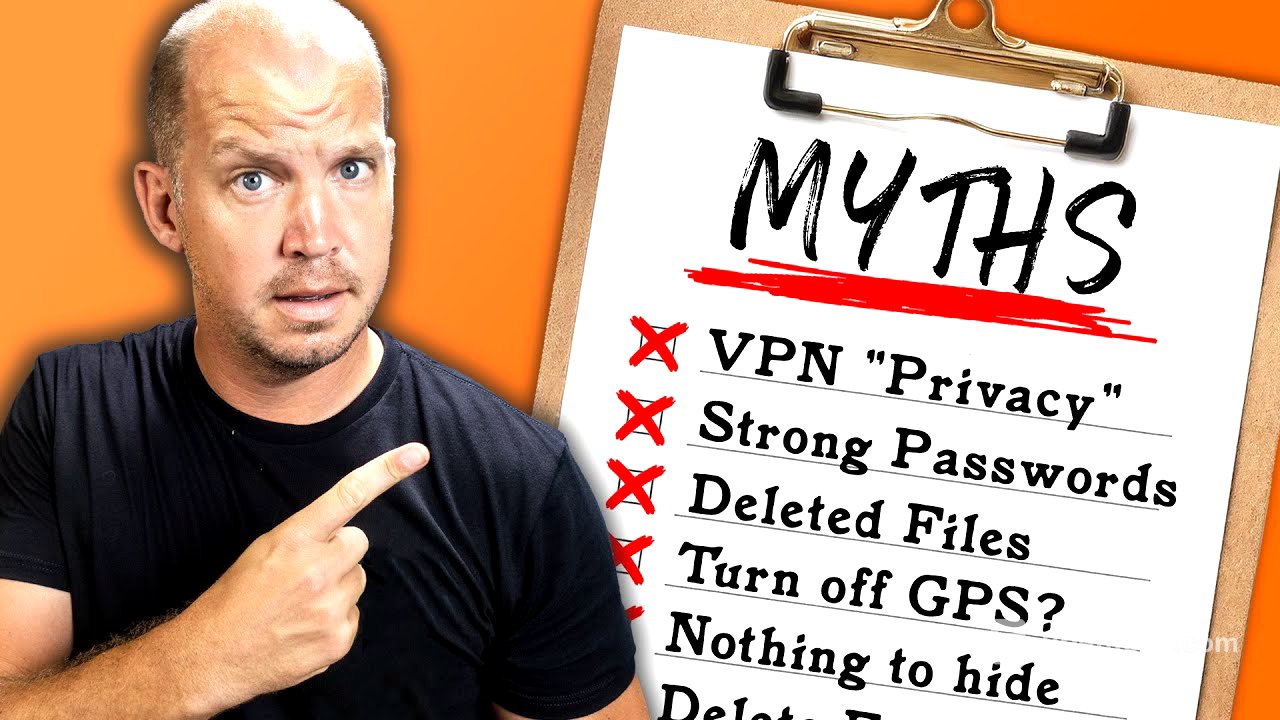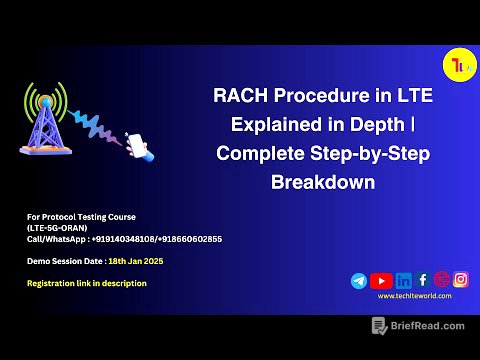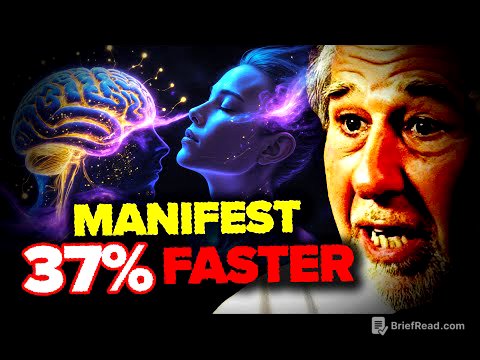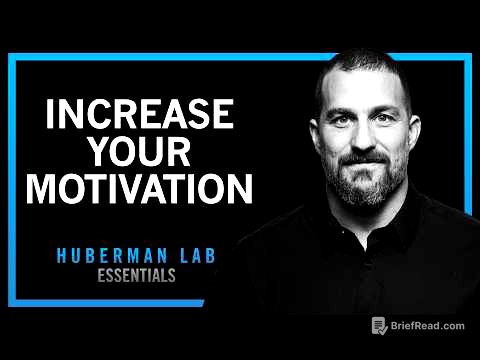TLDR;
This video busts common privacy and security myths. It highlights that deleting files doesn't erase them, Facebook tracks you even without an account, private social media isn't truly private, VPNs aren't a complete fix, strong passwords can still be compromised, GPS isn't the only way to be tracked, and "nothing to hide" isn't a valid reason to ignore privacy. The video emphasizes taking control of your data and being proactive about your digital security.
- Deleting a file doesn't mean it's gone forever.
- Facebook tracks you even if you don't have an account.
- "Private" social media accounts aren't really private.
- VPNs aren't a magic bullet for online privacy.
- Strong passwords aren't enough to protect you.
- GPS isn't the only way you're being tracked.
- "Nothing to hide" is a flawed argument against privacy.
Privacy Myths Intro [0:00]
The video intro sets the stage by questioning common beliefs about online privacy and security. It challenges the notion that deleting a file makes it disappear, that avoiding Facebook means you're untracked, and that VPNs offer complete protection. The presenter aims to debunk these and other widespread misconceptions about digital privacy.
Facebook Tracking Myth [0:28]
Even if you don't have a Facebook account, Facebook is still tracking you. The Facebook pixel, present on millions of websites, allows Facebook to follow your internet activity. While they might not be able to directly link the data to your identity, they're still collecting information about your browsing habits.
Private Social Media Myth [0:46]
Setting your social media accounts to private gives a false sense of security. While it prevents public access and search engine crawling, your connections can still screenshot and reshare your posts. More importantly, social media platforms share data with advertisers, analytics partners, and connected apps, like that old gaming platform you linked to your Facebook. Even banks share data with Meta to predict spending patterns. To counter this, audit connected apps, disable off-Facebook activity, and assume anything you post can be used against you.
File Deletion Myth [2:18]
Deleting a file doesn't actually remove it from your hard drive. The system marks the space as available, but the data remains until overwritten. Forensic tools can sometimes recover these files. Cloud storage services often keep version histories and have data retention policies, so you never really know when a file is truly deleted. To protect your data, be selective about what you store in the cloud, use full disk encryption on your computer, and use secure erase utilities to overwrite data multiple times when discarding a device.
VPN Privacy Myth [3:32]
VPNs don't provide complete anonymity. They primarily hide your IP address, but don't stop fingerprinting, DNS leaks, persistent cookies, or protect against phishing attacks. Using a VPN requires trusting the VPN company to handle your data properly. VPNs aren't a silver bullet, but they can be useful when combined with best practices like using a private browser, tracker blocking, and disabling third-party cookies.
"Strong" Passwords Myth [4:47]
Even the strongest passwords can be compromised through phishing attacks and data breaches. Your password might already be available on the dark web, especially if you reuse it across multiple accounts. Phishing attacks exploit the weakest link: you. The alternative is multi-factor authentication (MFA), preferably using hardware security keys or app-based authenticators over SMS texts. Enabling 2FA on your accounts significantly reduces the risk from data breaches and phishing.
Stop GPS Tracking Myth [6:01]
Turning off GPS doesn't make you untrackable. Your phone carrier can estimate your location using cell tower triangulation. Stores can track you via Bluetooth or Wi-Fi, and websites can infer your location from your IP address. While disabling GPS is a good practice, it doesn't make you invisible. To avoid tracking, consider using a privacy-focused operating system or avoiding SIM cards altogether, but the best solution is to leave your phone at home if you don't want to be tracked.
The "Nothing to Hide" Myth [6:57]
The "nothing to hide" argument equates privacy with wrongdoing, but privacy is about consent and control. It's about reducing digital profiling, preventing identity theft, and having autonomy over your data. Even seemingly harmless data points can be combined to reveal sensitive information. Protecting your privacy is about asserting personal sovereignty and controlling who gets your data, where it's stored, and how it's used.
Be the Gatekeeper [8:05]
Instead of seeding power to big tech or bad actors, you should be the gatekeeper of your own digital life. There are many other privacy myths, and the presenter encourages viewers to share them in the comments. The video ends with a recommendation to watch another video with cybersecurity tips.









